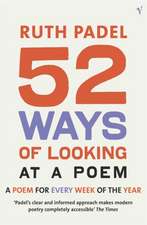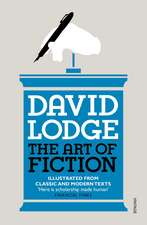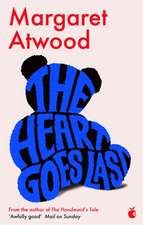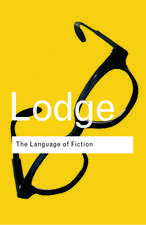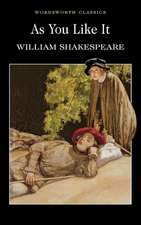Mao: Routledge Historical Biographies
Autor Michael Lynchen Limba Engleză Paperback – 2 mai 2017
Through a wealth of primary and secondary sources and a balanced consideration of the conflicting views that surround Mao’s leadership, this book provides a thorough exploration of Mao’s political and private life. Key features of the second edition include a detailed analysis of the Long March, an account of Sino-Japanese relations and an assessment of Mao’s ongoing legacy.
This biography will be essential reading for anyone interested in Mao and the politics of twentieth-century China.
| Toate formatele și edițiile | Preț | Express |
|---|---|---|
| Paperback (1) | 365.02 lei 6-8 săpt. | |
| Taylor & Francis – 2 mai 2017 | 365.02 lei 6-8 săpt. | |
| Hardback (1) | 763.78 lei 6-8 săpt. | |
| Taylor & Francis – 2 mai 2017 | 763.78 lei 6-8 săpt. |
Din seria Routledge Historical Biographies
-
 Preț: 277.18 lei
Preț: 277.18 lei -
 Preț: 316.11 lei
Preț: 316.11 lei -
 Preț: 324.50 lei
Preț: 324.50 lei -
 Preț: 315.56 lei
Preț: 315.56 lei -
 Preț: 318.28 lei
Preț: 318.28 lei -
 Preț: 316.09 lei
Preț: 316.09 lei -
 Preț: 317.47 lei
Preț: 317.47 lei -
 Preț: 315.84 lei
Preț: 315.84 lei -
 Preț: 319.00 lei
Preț: 319.00 lei -
 Preț: 324.56 lei
Preț: 324.56 lei -
 Preț: 273.21 lei
Preț: 273.21 lei -
 Preț: 274.89 lei
Preț: 274.89 lei -
 Preț: 318.76 lei
Preț: 318.76 lei -
 Preț: 315.62 lei
Preț: 315.62 lei -
 Preț: 316.38 lei
Preț: 316.38 lei -
 Preț: 319.98 lei
Preț: 319.98 lei -
 Preț: 316.16 lei
Preț: 316.16 lei -
 Preț: 311.35 lei
Preț: 311.35 lei -
 Preț: 315.62 lei
Preț: 315.62 lei -
 Preț: 315.62 lei
Preț: 315.62 lei -
 Preț: 316.38 lei
Preț: 316.38 lei - 22%
 Preț: 245.56 lei
Preț: 245.56 lei - 22%
 Preț: 245.56 lei
Preț: 245.56 lei -
 Preț: 368.76 lei
Preț: 368.76 lei -
 Preț: 363.96 lei
Preț: 363.96 lei -
 Preț: 395.21 lei
Preț: 395.21 lei -
 Preț: 367.90 lei
Preț: 367.90 lei - 26%
 Preț: 762.57 lei
Preț: 762.57 lei -
 Preț: 333.72 lei
Preț: 333.72 lei -
 Preț: 409.48 lei
Preț: 409.48 lei - 26%
 Preț: 762.57 lei
Preț: 762.57 lei -
 Preț: 363.96 lei
Preț: 363.96 lei - 26%
 Preț: 763.78 lei
Preț: 763.78 lei
Preț: 365.02 lei
Nou
Puncte Express: 548
Preț estimativ în valută:
69.85€ • 72.49$ • 58.39£
69.85€ • 72.49$ • 58.39£
Carte tipărită la comandă
Livrare economică 15-29 martie
Preluare comenzi: 021 569.72.76
Specificații
ISBN-13: 9781138122079
ISBN-10: 1138122076
Pagini: 324
Ilustrații: 8
Dimensiuni: 129 x 198 x 23 mm
Greutate: 0.34 kg
Ediția:Revised
Editura: Taylor & Francis
Colecția Routledge
Seria Routledge Historical Biographies
Locul publicării:Oxford, United Kingdom
ISBN-10: 1138122076
Pagini: 324
Ilustrații: 8
Dimensiuni: 129 x 198 x 23 mm
Greutate: 0.34 kg
Ediția:Revised
Editura: Taylor & Francis
Colecția Routledge
Seria Routledge Historical Biographies
Locul publicării:Oxford, United Kingdom
Public țintă
General and UndergraduateCuprins
List of maps
Chronology
Introduction
1 Young Mao
2 Mao the Communist and Nationalist: 1921–30
3 From Futian to the Long March: 1930–35
4 The Yanan years: 1935–43
5 Years of triumph: 1943–50
6 Emperor of the Blue Ants: 1950–62
7 The Cult of Mao and the Cultural Revolution: 1962–76
8 Mao Zedong: an assessment
Further reading
Index
Chronology
Introduction
1 Young Mao
2 Mao the Communist and Nationalist: 1921–30
3 From Futian to the Long March: 1930–35
4 The Yanan years: 1935–43
5 Years of triumph: 1943–50
6 Emperor of the Blue Ants: 1950–62
7 The Cult of Mao and the Cultural Revolution: 1962–76
8 Mao Zedong: an assessment
Further reading
Index
Notă biografică
Michael Lynch is an Honorary Fellow of the University of Leicester and specialises in European and Far Eastern history. He has contributed to a number of television documentaries on modern historical themes, and his publications include Hitler (2013), Authoritarian States (2015) and China 1939–1997 (2016).
Recenzii
'Perhaps more than any other historical figure, Mao Zedong remains a paradox – was he a revolutionary visionary, a bloodthirsty tyrant, or a combination of the two? In this second edition, Michael Lynch deftly explores the contradictions and conflicts within Mao’s political ideology and personal life by rooting Maoism within its sociopolitical context. Approachable and highly readable, Mao is certain to become a key text for scholars and students alike.'
Emily Baum, University of California, Irvine
'In his concise yet penetrating narrative, Lynch steps out of the Western ideological framework to examine Mao Zedong on his own terms. He skilfully places Mao in the broader context of tumultuous twentieth century China, which was forced to grapple with the twin burdens of her proud and glorious historical past and the bleak reality of a world order dominated in almost every way by foreign powers. This nuanced and vividly written biography is a must-read to understand why Mao Zedong continues to be revered in China, both officially and among a wide segment of Chinese society.'
Xing Hang, Brandeis University
Emily Baum, University of California, Irvine
'In his concise yet penetrating narrative, Lynch steps out of the Western ideological framework to examine Mao Zedong on his own terms. He skilfully places Mao in the broader context of tumultuous twentieth century China, which was forced to grapple with the twin burdens of her proud and glorious historical past and the bleak reality of a world order dominated in almost every way by foreign powers. This nuanced and vividly written biography is a must-read to understand why Mao Zedong continues to be revered in China, both officially and among a wide segment of Chinese society.'
Xing Hang, Brandeis University
Descriere
Michael Lynch presents an engaging and thorough account of Mao's life and politics, making use of a wealth of primary and secondary sources. He locates Maoism in the broader context of twentieth century Chinese history, discussing the development of the Chinese Communist Party, the creation of the People's Republic of China and the Cultural Revolution. Details of Mao's controversial private life as well as his political and philosophical thought add to this diverse picture of the influential leader. This second edition provides detailed analysis of the Long March, Sino-Soviet relations and the Great Famine and also includes a new chapter on Mao’s legacy.

